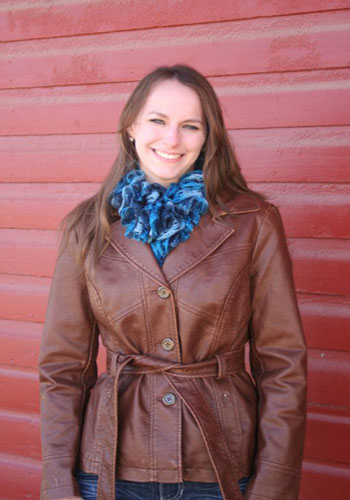
Can you explain what the Honorable Mention means in terms of the NSF Graduate Research Fellowship Program?
Honorable mention is considered a significant national academic achievement and provides access to cyberinfrastructure resources. It is awarded to applicants to the NSF GRF program who submitted exceptional applications but did not receive the fellowship. I am the first CSE student to receive this honor and I have not yet started my graduate studies. I am very honored to have received Honorable Mention as a graduating senior. I am very grateful for the assistance of Dr. Laura Damuth, the Director of National and International Fellowships, who helped with my application. Furthermore, I would like to thank my research mentors, Dr. Berthe Choueiry and Dr. Matthew Dwyer, for their work and support over the last couple years; my participation in research activities enhanced my application and I am extremely grateful to them for the opportunities they have offered me.
What was the project that was submitted? Can you explain it in some detail?
The project I proposed built upon my current research in Constraint Satisfaction Problems (CSPs). Currently I am investigating strategies for learning and summarizing no-goods to improve the performance of search for solving binary CSPs. In my proposal, I proposed new strategies that are applicable to non-binary CSPs that exploit higher order consistencies, which are the result of recent research at the Constraint Systems Laboratory.
How do you see this impacting your career?
Honorable Mention for an NSF Graduate Research Fellowship will make my resume stand out because it is a significant accomplishment. Furthermore, the reviews of my application that I received will greatly help me when I apply for this fellowship again.
Can you describe your experience in the CSE program here at UNL?
I have very much enjoyed my undergraduate career at UNL. I have had the opportunity to work with Dr. Matthew Dwyer and Dr. Berthe Choueiry on both group and individual research projects. I presented our group research project at a national conference. I am very grateful for their support and mentoring. I have enjoyed the CSE courses that I have taken and utilized the skills and knowledge acquired in these courses in my research projects and outside work. I have also enjoyed being an undergraduate teaching assistant at CSE, and was honored to receive the CSE undergraduate teaching award in academic year 2010-2011. All those experiences are helping shape my career.
What courses/projects stick out most in your mind?
My interest in research stemmed from the CSCE 235 Discrete Mathematics course that I took with my mentor, Dr. Choueiry. This class followed by two research-intensive courses on Constraint Processing have been extremely valuable to me to acquire the mathemactical foundations and the research methods that I need. Furthermore, CSCE 310 Data Structures and Algorithms improved my approach to developing new techniques/algorithms in my research projects.
You are graduating soon. Do you hope to attend grad school?
It is very important to me to attain a graduate degree. I do plan on attending graduate school. I am heading off to the industry to acquire experience in applying constraint-based techniques in logistics and will be back to pursue graduate school.
Can you tell me about your projects with UCARE and CREU-W?
My team project for CREU-W entailed a study of both the areas of Constraint Processing (CP) and Satisfiability (SAT). My team developed a graphical visualization tool that allows a user to interactively trace the execution of a specific SAT solver while observing the evolution of the constraints of the problem. This tool is aimed towards students learning the algorithm and was presented in a poster session at the 2012 Grace Hopper Women in Computing Conference. My project for UCARE has focused on studying the state of the art of no-good learning both in CP and in SAT. My investigations have resulted a new mechanism for reducing the cost of exploiting and storing the learned no-goods. I will document those results in an undergraduate honor thesis.